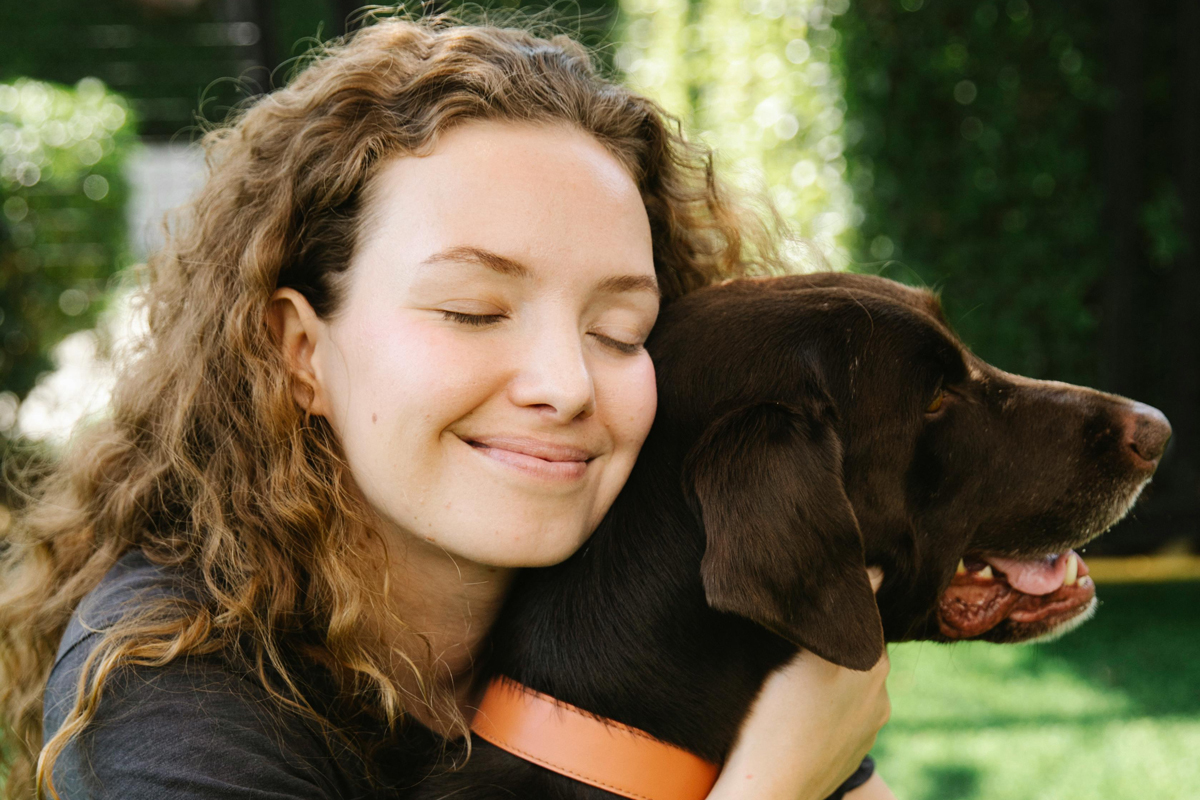The loss of a family pet can trigger profound grief that often catches us by surprise. That faithful companion who greeted you each morning, who knew your routines and moods, who loved you unconditionally—their absence leaves a palpable void. For many of us, pets are family members whose daily presence is woven deeply into the fabric of our lives.

Yet despite how common and devastating pet loss can be, many people feel they must minimize their grief or "get over it quickly." This article acknowledges the significance of pet loss grief while offering practical, compassionate strategies for coping, supporting family members, and honoring your beloved companion's memory.
Understanding Pet Loss Grief
The bond between humans and animals is unique and powerful. Research in the field of anthrozoology (the study of human-animal interactions) shows that the human-animal bond activates the same neurological and hormonal responses as human-to-human attachments. This explains why the grief following pet loss can be so intense and long-lasting.
Common grief responses to pet loss include:
- Deep sadness and frequent crying
- Difficulty sleeping or changes in appetite
- Feeling guilty about decisions regarding end-of-life care
- Phantom experiences (hearing or seeing your pet)
- Difficulty concentrating or low motivation
- Questioning whether your grief is "valid"
- Anxiety about other pets or family members

Research by the American Veterinary Medical Association shows that for many people, the loss of a pet ranks similar in intensity to the loss of a human relationship. This grief deserves validation and respect, especially when your pet has been with you through major life transitions like college, first apartments, or career changes.
The Unique Aspects of Pet Loss Grief
Pet loss grief often carries unique complexities:
Disenfranchised Grief: Society doesn't always recognize pet loss as "legitimate" grief, leading to comments like "it was just a dog" or "you can get another cat." This invalidation can compound suffering, especially when you're already balancing multiple life responsibilities.
Decision-Making Burden: Unlike most human deaths, pet owners often must make euthanasia decisions, which can lead to complex feelings of guilt, responsibility, and second-guessing.
Loss of Routine and Role: The daily schedule of feeding, walking, and caring for a pet structures many people's lives. This sudden void of routine and caretaking role magnifies the sense of loss, particularly if your pet was a constant in your otherwise busy and changing life.
Social Media Complexity: Deciding how or whether to share your loss on social platforms can be challenging. Well-meaning but dismissive comments can hurt, while genuine support can be healing.
Practical Strategies for Coping with Pet Loss
1. Validate Your Grief
Daily practices:
- Acknowledge that your grief is real and legitimate
- Give yourself permission to feel the full range of emotions
- Push back against thoughts that you "should be over it by now"
- Communicate your needs to others: "I'm still grieving and need some understanding"
If you're balancing work responsibilities, career demands, or even parenting while grieving, it can be challenging to navigate environments that may not recognize pet bereavement. Consider taking a mental health day if possible, or being honest with a supportive supervisor about your loss.
Try this: Create a small ritual each time you feel you need to apologize for your grief. Perhaps place your hand on your heart and silently affirm, "My love for [pet's name] was real, and my grief is valid."
2. Create Meaningful Memorials
Rituals and memorials help us process grief by providing tangible ways to honor our pets and externalize our emotions.
Memorial ideas:
- Create a photo album or digital slideshow of favorite memories
- Design a custom playlist that reminds you of moments with your pet
- Plant a tree or garden in your pet's memory
- Commission a portrait or piece of art representing your pet
- Make a donation to an animal shelter in your pet's name
- Create a memory box with your pet's collar, favorite toy, or paw print
- Share stories and photos on social media if that feels supportive
Digital memorials can be particularly meaningful when your pet has been documented throughout your social media history. Creating a highlight reel, dedicated Instagram post, or even a TikTok tribute can help externalize your feelings while receiving support from your online community.
Try this: On the monthiversary of your pet's passing, light a candle and spend 15 minutes writing a letter to your pet expressing what you miss and the gifts they brought to your life.
3. Seek Support from Those Who Understand
Finding supportive individuals who validate your feelings can be tremendously healing.
Where to find understanding:
- Pet loss support groups (online or in-person)
- Veterinary staff who provide grief resources
- Friends who are animal lovers
- Pet loss hotlines and counseling services
- Online communities focused on pet grief
Social media can be both supportive and challenging for grief expression. Consider how (or if) you want to share your loss online, and don't hesitate to mute or block any content that feels invalidating. Remember that it's okay to set boundaries around how you engage with others during your grief process.
Try this: If someone dismisses your grief, have a simple script ready: "I know some people might not understand, but [pet's name] was family to me, and I'm still processing this loss."
4. Attend to Your Physical Needs
Grief takes a physical toll that's often overlooked. Taking care of your body supports emotional healing, especially when balancing work, possible parenting, and other responsibilities.
Daily practices:
- Maintain regular sleep schedules as much as possible
- Take short walks or do gentle movement that feels supportive
- Keep nourishing food easily accessible (meal delivery apps can help)
- Stay hydrated and limit alcohol consumption
- Consider short mindfulness practices to regulate your nervous system
- Use technology to set reminders for self-care if grief is affecting your focus
Even brief moments of self-care can make a significant difference. Try setting a timer for just 5 minutes of deep breathing or gentle stretching when grief feels overwhelming.
Try this: Create a "grief care kit" with items that soothe your senses: a soft blanket, calming tea, a lavender sachet, a playlist of gentle music, and photos that bring comfort.
5. Honor Your Pet's Legacy
Finding meaning in your pet's life and death can be a powerful part of healing.
Ways to honor their legacy:
- Volunteer at an animal shelter (even virtually if time is limited)
- Support animal welfare legislation
- Share stories about your pet with others
- Apply lessons your pet taught you about living in the moment
- Consider when (or if) welcoming another animal companion feels right
- Create a digital fundraiser for an animal cause your pet would "support"
Channel your grief into activism or volunteer work with animal welfare organizations when you're ready. Even small actions can create meaning and purpose during the healing process.
Try this: Identify one quality you admired in your pet (such as resilience, playfulness, or loyalty) and find a small way to embody that quality each day as a living tribute.
Supporting Other Family Members in Their Grief
One challenge of family pet loss is that each person may grieve differently, which can sometimes create tension or misunderstanding:
- Recognize that there's no "right way" to grieve and avoid judging others' expressions of loss
- Create space for individual grief while also finding ways to remember your pet together
- Be especially attentive to family members who had primary caretaking responsibility for the pet
- Consider having a family conversation about how each person would like to be supported
- Understand that children may move in and out of grief, seeming fine one moment and devastated the next
If you're a parent helping children with pet loss while managing your own grief, be gentle with yourself. Balance your own grief needs with supporting your children through theirs, and remember that seeing you process grief in a healthy way teaches children valuable emotional skills.

The Question of Getting Another Pet
One of the most common questions after pet loss is when—or if—to welcome another animal into your home. There's no universal timeline, and the decision is deeply personal:
- Resist external pressure to "just get another pet" before you're ready
- Recognize that a new pet doesn't replace the one you lost but creates a new and different relationship
- Consider the needs and readiness of all family members, especially remaining pets
- Be honest about your capacity to form a new attachment while still grieving
- Some people find healing in providing a home for another animal in need, while others need significant time before considering this step
Be mindful of pressure to replace your pet quickly, particularly if your pets are central to your identity or lifestyle. Give yourself time to fully process this relationship before considering another.
When to Seek Additional Support
While pet loss grief is normal, sometimes additional support is beneficial. Consider reaching out to a mental health professional if:
- Grief remains intensely debilitating after several months
- You experience thoughts of self-harm or persistent hopelessness
- The loss triggers overwhelming anxiety about other pets or family members
- You're unable to function in daily life or fulfill responsibilities
- Grief is complicated by other significant life stressors or mental health conditions

For those who've experienced multiple losses, the pet's death might trigger cumulative grief from other losses in your life. For anyone living alone or whose daily routine centered heavily around pet care, the absence of that structure can be particularly challenging.
Mental health professionals can provide specialized grief support strategies and help you process complex emotions in a non-judgmental environment.
Finding Meaning in the Journey
Many people eventually find that pet loss, while painful, offers profound lessons:
- A deeper appreciation for the unconditional love animals offer
- Greater compassion for all types of grief, including losses others might consider "small"
- Renewed perspective on living in the present
- Enhanced capacity to form deep attachments despite knowing loss is inevitable
- Connection to a community of animal lovers who understand the depth of these bonds

The experience may develop important emotional resilience and grief processing skills that will serve you throughout life. Many find that honoring their pet's memory through continued connection to animal welfare causes creates purpose and meaning.
As veterinarian Dr. Karen Shaw Becker notes, "The pain of their loss is the price we pay for the privilege of their company. And it's worth every tear."
A Note From Our Cofounder Itiel On Losing His Family Pup, Ace.
When we welcomed Ace into our family, it felt like he had always belonged with us. He quickly became a fixture both at home and at the Community Minds office, where he greeted everyone with enthusiasm.

Though our time with Ace was short, the connection we formed was deep. I still find myself looking for him in his usual spots and reaching down to pet him when working at my desk.
Through celebrating his life—sharing stories and looking through photos with family and team members—I've learned that healing doesn't mean forgetting, but carrying his memory forward.
If you're navigating pet loss right now, your grief is valid and there is no timeline for healing. The brief time we had with Ace was worth the journey through grief. Sometimes the smallest family members leave the biggest impressions on our hearts.
— Itiel

Take the First Step Today
Find out which plans are covered. Unsure? Give us a call.
Free resources, created just for you!
Access articles, blogs, meditations and more. Have suggestions for free resources? Contact us.









